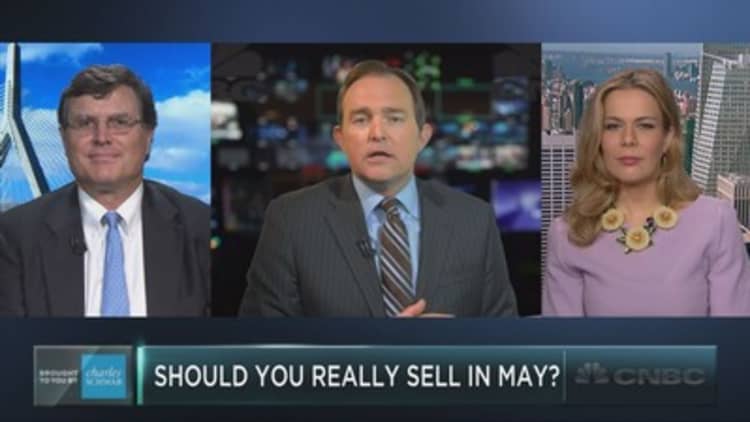
The old "sell in May and go away" investing strategy has worked most times, but it might not this year.
Since 1950, the has performed even better during the summer months when it begins May in an uptrend like it is now, according to data compiled by analysts at Strategas.
In this case, Strategas defines an uptrend as the S&P trading above its 10-month moving average.
Source: Strategas
Another factor indicating an upward trend in the market is the NYSE advance-decline line, which hit a new high last week, indicating broad participation.
"The calendar is less supportive over the next number of months, but seasonal weakness is often more pronounced in downtrends vs. uptrends," Strategas said in a Monday note.
Historically, May through September has not been the best period for U.S. equities proving the simple adage correct. Since 1950, the S&P's average monthly gain for May is just 0.2 percent and has averaged slight losses in August and September, Strategas' data show.
The benchmark index has also averaged a flat monthly performance in June and a 1 percent gain in July.
For Erin Gibbs, equity chief investment officer at S&P Capital IQ, fundamental factors may determine the success of the “sell in May” strategy.
“On average, the market does tend to be down during the summer months — but what’s going on in the U.S. economy really does make a difference," Gibbs said Friday on CNBC’s “Trading Nation.”
That is to say, when macroeconomic indicators like the consumer price index, the ISM manufacturing index and consumer confidence indexes are moving higher, “you are likely to have positive returns in the summer months.”
“Now that everything is positive, I’d say, stay in the market,” Gibbs concluded.
Some have more philosophical reasons for saying the well-worn rhyme is “absolutely not good investment advice,” as Miller Tabak equity strategist Matt Maley did Friday on “Trading Nation.”
It’s not just that the advice hasn’t worked out in many recent years; when making investment decisions, “you have to look at the fundamentals, or even the technicals,” Maley said. “You’ve got to look at what’s really going on in the market at any given time, and not at turning the page on the calendar. “
The S&P entered May trading at 2,384.20, just 0.7 percent away from its all-time high of 2,400.98. The index has also gained more than 6 percent this year.
S&P 500 year to date
Source: FactSet







